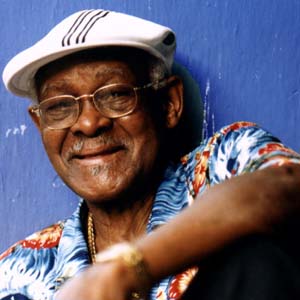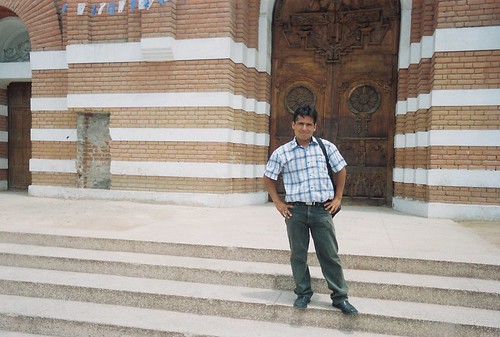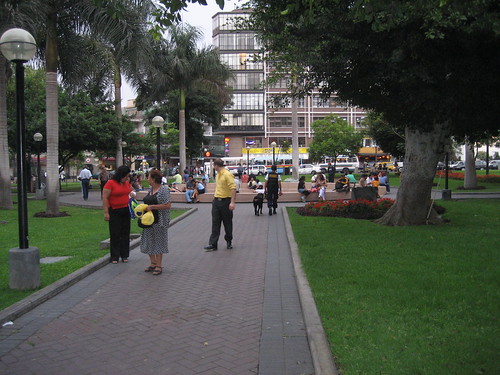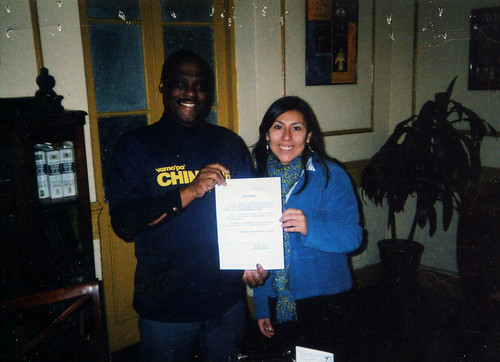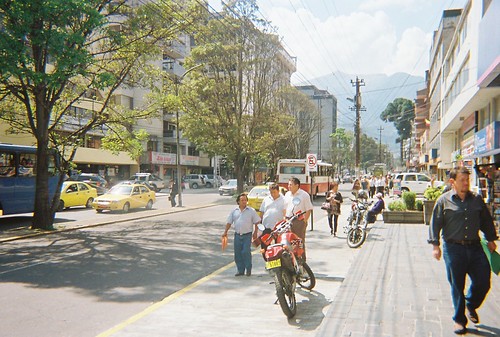
I'll never forget my first night at the Caribee Dance Center in Oakland, CA where everyone, from the patrons to the DJ to the barmaids, were welcoming and friendly. There was a relaxed, cultured vibe in the air. People of all races were trickling in as the night progressed. I did not observe any of the drama and defensive, uptight attitudes you find at your average night club. People here came to party. Everyone was jamming the dance floor and having a good time. By the end of the evening, I knew I had found a new home.

Roberto Borrell of Cuba, and founder of Orquesta La Moderna Tradición
I've loved salsa music since I was a kid growing up in the salsa capital------New York City. The problem was that I never learned to dance. As I watched the pros at the Caribe Dance Center, my mind was made up to become a salero, a die-hard salsa dancer. It was not as easy as I thought. I had a big job of learning the dance patterns, how to lead a woman with confidence, and at the same time, keep the rhythm. It was disappointing that the woman who, like me, were beginners, avoided me so they could learn from more experienced dancers. I promised myself that once I become a proficient, I will be compassionate with those trying to learn.

Orquesta Avance, my number one salsa group in the Oakland area
Finally, I met Linda Arizona who taught classes at the La Peña Cultural Center in Berkeley. I used to get up early before work and practiced everything she taught me in slow motion. Once I felt I got the rhythm in my system, I turned on the music, and was satisfied with the results. I went back to the Caribee and noticed that the women who were apprehensive about dancing with me were pleasantly surprised that I-have-arrived! I became a smooth, fluid salsa dancer, getting a lot of compliments from the pros whom I used to watch and admire while sitting on the sidelines. This felt good.

As my salsa dancing skills developed, I began to meet more than my share of dance-floor snobs.
I got a kick out of women who ASSumed because I am a brother that I didn't know how to salsa. I'll never forget one woman whom I asked to dance and the way she looked at me with suspicion before declining. I noticed her watching me flowing through dance patterns with other women, only to appear sorry that she was so judgmental. I hope she learned her lesson, but I'll never know. My personal policy on the dance floor is to ask only once. If a woman turns me down and has a change-of-heart later, the burden will be on her to ask me to dance (not vice-versa). There were just too many down-to-earth woman who simply wanted to dance with a gentleman for me to worry about dance-floor snobs.

I've heard it said that salsa dancing is like having a relationship on the dance floor.
The beauty of salsa dancing, unlike ordinary night-club dancing, is that it forces the man and the woman to interact and engage one another. I've heard it said that salsa dancing is a relationship on the dance floor. I personally can tell a lot about a woman by the way she dances with me. I can tell if she is selfish or giving, stubborn or open-minded, friendly or stuck up, independent or clingy, shy, stuck-up, or out-going. A woman's attitudes inadvertently surfaces, and I am sure for the men as well.
Check out this hot tune by Maraca!





